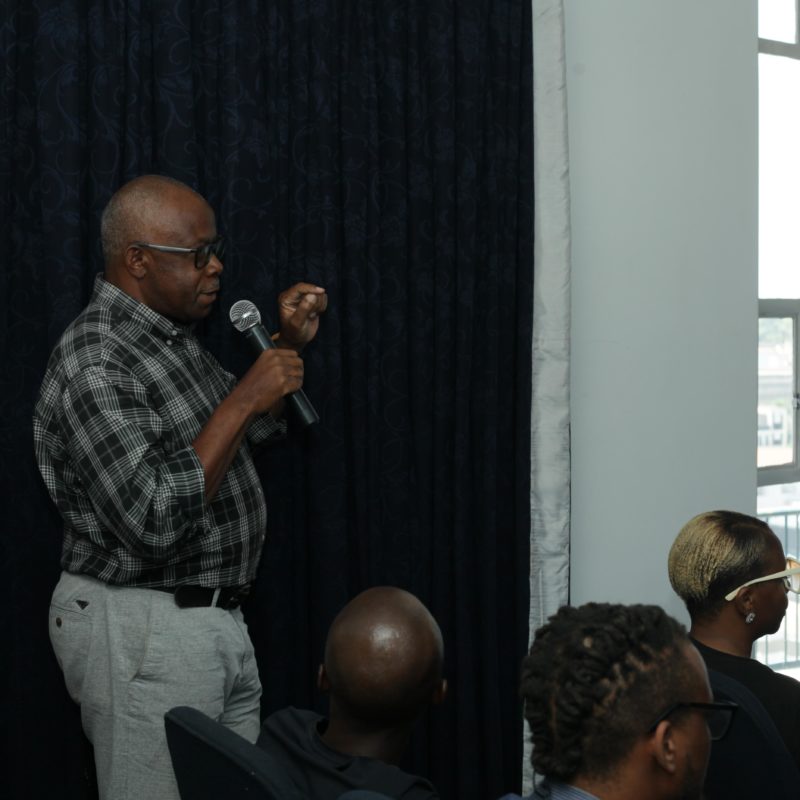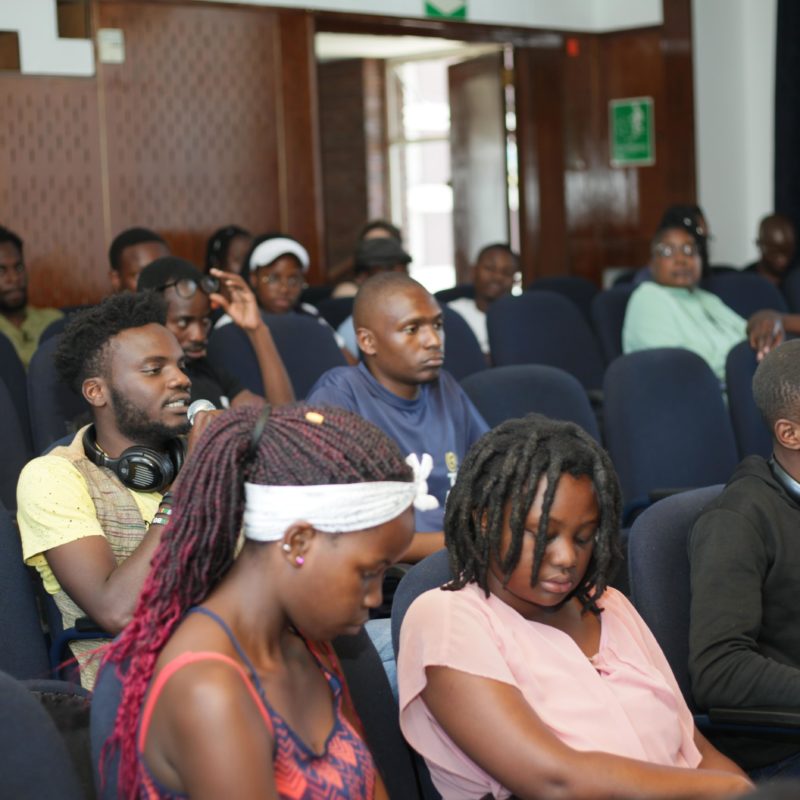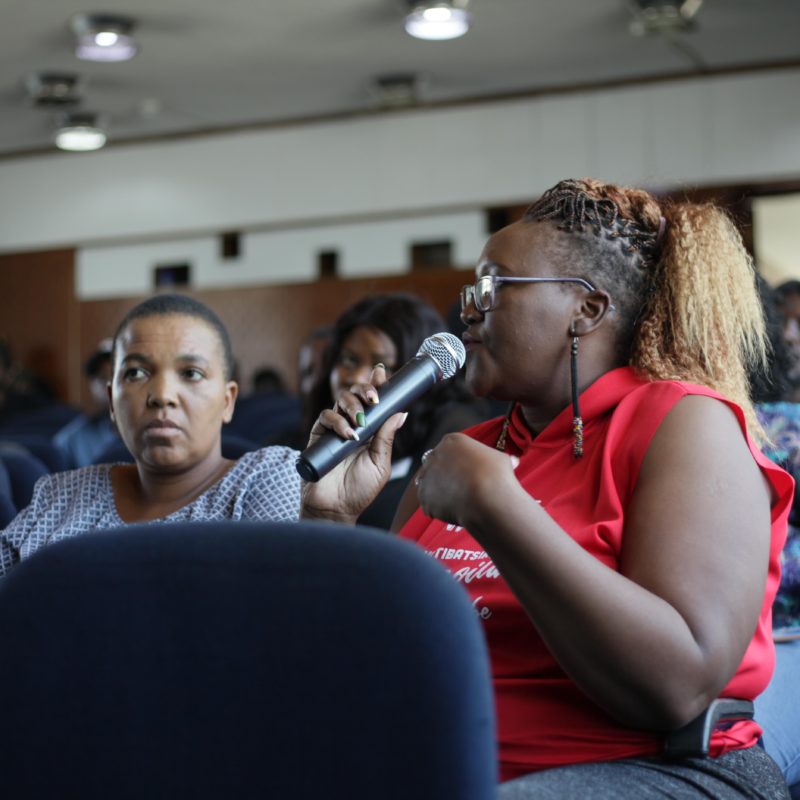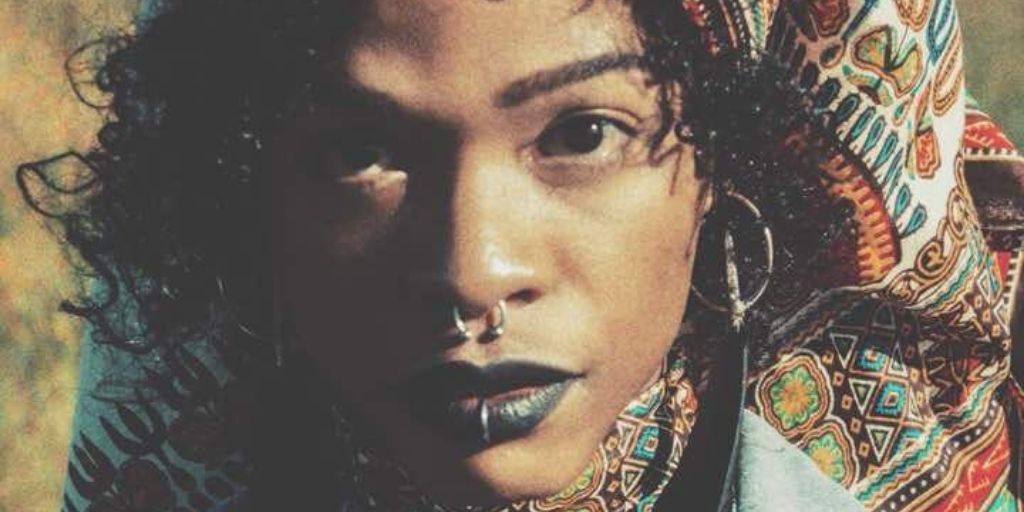A rugged theatre conversation took a center stage at a Creative Hustles seminar themed The Future of Theatre: Imagining Sustainable New Theatre Practices in the Zimbabwean Context hosted by the British Council Zim at the Afrotopia creative hub in Harare on November 18th.
The event was born out of the need to generate conversation around the current state of theatre in Zimbabwe and provide viable ideas, innovations and actions that both theatre practitioners and the audience can take to sustain Zimbabwe’s theatrical tradition while generating income for participants.
The discussion proceeded along previously set thematic lines of inquiry that focused on highlighting key areas and points of discussion related to the discussion’s purpose.
Emerging filmmaker Fungai Stanely Chigumbura facilitated the conversation with playwright Raisedon Baya, International Theatre Institute of Zimbabwe chairperson Zaza Muchemwa and theatre doyen and spoken word artist Lady Tshawe as panellists.
Key Insights/Common Findings
Several interesting key points arose from both the discussion with the panel and the open session with the audience. These ranged from audience engagement to the critical issue of the future of theatre in precarious financial times. The points of discourse included:
- Discussion around Zimbabwe’s rich theatrical history and how it evolved. From Amakhosi Theatre to Theatre in the Park, the country’s theatrical tradition was noted as always standing strong on the shoulders of individual passion and engagement with the audience.
- The change in the economic approach of theatre. There was a noted dependency on donor money, which was believed to have hindered theatre practitioners’ ability to source funding for their productions using more traditional means and thus negatively affected the relationship between them and their audience.
- The restrictions of successfully operating a theatre and staging theatrical production around stringent political limitations.
- The evolution of theatre spaces from being exclusively for theatre to hosting other events in order to maintain the space and provide revenue. It was noted that the distraction from their primary purpose may be a reason for the decline of theatre and that new theatrical spaces should be explored and utilised while preserving older ones.
- The communal nature of theatre and how this can be leveraged to encourage more people to engage with theatre.
- The necessity of treating theatre as a serious medium that deserves the same amount of recognition as other art forms, such as music. Theatre largely seems to have fallen into one of the two poles of either being donor funded for a specific message or protest theatre. If theatre is regarded as its own valid art form, then there can be a greater variety of productions with varied aesthetics and purposes.
- The dearth of robust theatre criticism. This was noted as having a cascading effect, as the lack of respected, outstanding theatre critics left many audience members without a guide for the theatrical experience regarding what they should watch. It also deprives practitioners of a key experience and voice in improving their work.
- The difficulty of getting people to invest in theatre in the current economic condition.
Some of the suggested best measures to mitigate economic hardships for thespians and increase engagement in local theatre, especially for younger people, included:
- Using digital technology, such as streaming platforms
- Engaging family members and other supporters to provide financial aid where possible
- Building and engagement of a large audience locally and in the diaspora.
- More effective marketing through avenues such as social media
- The need for continued conversation amongst people who are invested in theatre, in particular between the older generation who were present during early post-independence theatre and the younger generation who emerged in the subsequent decades.


 About Creative Hustles
About Creative Hustles
Creative Hustles is a seminar-style event that offers creatives the opportunity to gain awareness of the range of artistic and non-artistic livelihood opportunities available across creative sector value chains. It also provides opportunities to connect artists with non-artists to help strengthen the creative ecosystem through networking. The Future of Theatre conversation is one of the 10 creative hustle seminars that are being delivered across Zimbabwe by Enthuse Afrika under the “Designing The Nu’ Common” project. The seminars will explore, juxtapose, and lay bare dense, multilayered and polyvocal compendiums of contemporary thinking on the new ways in which the new gig economy affects people and their social environments, and investigate cases where creative practices have been operational in empowering people, communities, and societies. The objective of these creative hustles is to assemble a toolkit that allows local Cultural and Creative practitioners/actors to approach their work through conceptual contributions, tried and tested resilience mechanisms, and effective sustainability measures and strategies derived from regional, diverse disciplines and traditions of thought, i.e. regional theories of art, new art histories and trends, African cultural studies, cultural geography, urban studies, critical theory and resilient art ecosystems.
Creative Hustle is supported by the British Council Cultural Exchange programme, which supports cultural organisations, festivals, artists, and creatives between the countries of SSA* and the UK to create art, build networks, collaborate and develop markets and share artists’ work with audiences.























